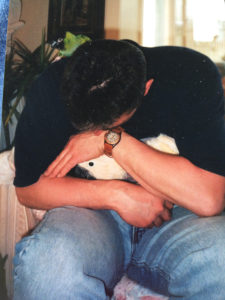Caring of Captive Exotic Birds
 Although they are complex, WILD creatures, caring for captive exotic birds can be quite simple if you follow one elementary rule, common sense. Because parrots have been compared to a 2-5 year old child, it stands to reason that we should treat them as such regarding discipline, food, playtime, and bedtime. By following proper guidelines for raising human children, you can attain a successful relationship with your parrot.
Although they are complex, WILD creatures, caring for captive exotic birds can be quite simple if you follow one elementary rule, common sense. Because parrots have been compared to a 2-5 year old child, it stands to reason that we should treat them as such regarding discipline, food, playtime, and bedtime. By following proper guidelines for raising human children, you can attain a successful relationship with your parrot.
What are the basic guidelines for raising children? Well, here are a few to ponder. Number one, of course, is love. Love conquers all! It tames the beast in all of us. Even the most hardened and hurt person responds to love. Albeit it may come after extensive resistance, but it happens. Therefore, as with humans, we should exercise love. Please don’t misunderstand; love and spoiling are two different things. As with human children, they quickly learn what they can achieve and/or get away with and which tactics work. The same holds true for parrots. Because of their high intelligence, birds quickly master this art, as well. Please don’t mistake indulgence for love. Indulging your parrot will not make for a stable relationship in the long run. Don’t give your pet bird any more attention upon its arrival home with you, than you are prepared to give it on a daily basis.
If it is unwise to allow your child to do things unsupervised, so it is with your parrot. Is an unhealthy treat in the child’s best interest? The same goes for the bird. Is screaming and temper tantrums allowed in children? Should they be allowed in your pet? If a handbook came with a new human baby, you could easily adapt that information and apply it to pet parrots.
Unfortunately, good behaviors aren’t always nurtured in pet birds thus bad habits develop. Should you be faced with such a circumstance, there are a few reputable pet bird behaviorists in the US that can assist you in getting your parrot back on the right track and the Tropics is always willing to help out. Needless to say, there is neither time nor space to go into all of these issues.
A parrot’s diet is of the utmost importance. You can either pay the price of a good diet, or pay the money to a vet when illness occurs. As with humans, you are what you eat. If you eat junk, you’ll become sick and overweight. If you eat well, you may be leaner and definitely healthier. Because captive birds do not have the exercise of flying, it is important that they get as much good nutrition with a balance of fat. There are a few qualified nutritionists in the U.S. that can council you on a proper diet.
The issue of a parrot’s health is complex. They are susceptible to many diseases, including viral, bacterial, and fungal infections. In addition, their life can be compromised if the bird’s caretaker doesn’t know how to handle first aid situations, such as a bleeding feather, talon or beak. Of course, your vet should be contacted immediately should these problems occur. Depending upon the injury or illness, a majority of a bird’s health care is up to you, with assistance and training from the vet. You should be prepared to deal with complex health issues BEFORE purchasing or rescuing a bird. Mastering the art of tube feeding, administering injections, and wound management are just a few of the basics you should learn, again, BEFORE accepting a bird into your home. If you are squeamish, you will not be able to give your parrot adequate care. Think twice before acquiring it if you feel you can’t handle these situations. Your bird’s life may depend upon it.
If you would like additional information regarding the care of your pet parrot, please contact us at katzmary30@gmail.com, and we will be happy to assist.
